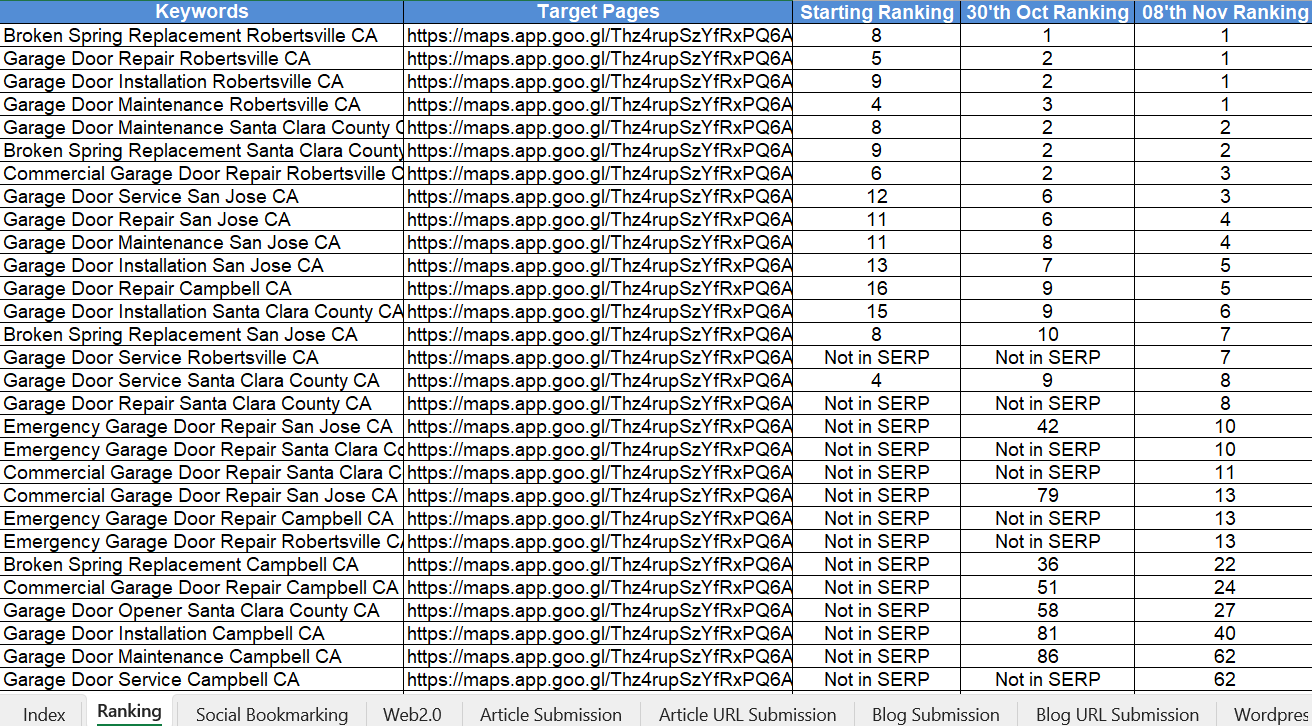Performance-Based Digital Marketing and Advertising Agency Models
Performance-Based Digital Marketing and Advertising Agency Models
Published on April 27, 2024 | By Market Wiz
In the ever-evolving landscape of digital marketing, businesses seek strategies that not only drive results but also ensure accountability and efficiency. Performance-based digital marketing and advertising agency models have emerged as a solution that aligns agency incentives with client success. Market Wiz specializes in these models, offering measurable and impactful marketing solutions that guarantee return on investment (ROI). This blog delves into the various performance-based models, their benefits, implementation strategies, and how Market Wiz can help your business thrive through results-driven marketing.
1. What is Performance-Based Marketing?
Definition and Overview
Performance-based marketing is a strategy where agencies are compensated based on the measurable results they achieve, such as leads generated, sales made, or other predefined key performance indicators (KPIs). This model shifts the traditional marketing payment structure from fixed fees to outcome-based compensation, ensuring that agencies are directly incentivized to deliver tangible results.
How It Differs from Traditional Models
Unlike traditional marketing models that charge fixed fees regardless of performance, performance-based models align agency payments with the success of campaigns. This creates a win-win situation where both the agency and the client are motivated to achieve the best possible outcomes.
2. Benefits of Performance-Based Models
Increased Accountability
Performance-based models hold agencies accountable for delivering results. Since compensation is tied to performance, agencies are more diligent in optimizing campaigns and ensuring that marketing efforts translate into measurable success.
Enhanced ROI
Clients benefit from enhanced ROI as they pay for actual results rather than promises. This ensures that marketing budgets are spent efficiently, focusing on strategies that drive real value for the business.
Stronger Alignment of Goals
These models foster a stronger alignment of goals between agencies and clients. Both parties are committed to achieving the same objectives, leading to more collaborative and effective marketing efforts.
Risk Mitigation
Clients can mitigate financial risk by opting for performance-based models. They only pay for successful outcomes, reducing the chances of investing in ineffective marketing strategies.
3. Types of Performance-Based Models
Pay-Per-Click (PPC)
In PPC models, agencies earn money based on the number of clicks their ads receive. This model is commonly used in search engine advertising, where clients pay for each click that leads to their website.
Pay-Per-Lead (PPL)
In PPL models, agencies are compensated for each qualified lead they generate. This model is ideal for businesses focused on lead generation and nurturing potential customers.
Pay-Per-Sale (PPS)
PPS models tie agency compensation directly to sales made. Agencies earn a commission or percentage of each sale they help generate, making it highly effective for e-commerce and direct sales businesses.
Revenue Sharing
Revenue sharing involves agencies receiving a percentage of the revenue generated from their marketing efforts. This model aligns agency success with client profitability, fostering a deeper partnership.
Cost Per Acquisition (CPA)
CPA models compensate agencies based on the cost to acquire a new customer. This model focuses on efficiency, ensuring that marketing efforts are optimized to acquire customers at the lowest possible cost.
4. How Market Wiz Implements Performance-Based Models
Setting Clear and Measurable Goals
At Market Wiz, we begin by collaborating with clients to establish clear, measurable goals that align with their business objectives. Whether it's increasing sales, generating leads, or enhancing brand awareness, we ensure that the goals are specific, achievable, and trackable.
Advanced Analytics and Tracking
We utilize advanced analytics tools to monitor and track the performance of each campaign in real-time. This allows us to make data-driven decisions, optimize strategies on the fly, and ensure that we are consistently meeting or exceeding the agreed-upon KPIs.
Continuous Optimization
Performance-based marketing requires ongoing optimization to achieve the best results. Our team continuously tests different strategies, adjusts targeting, refines messaging, and optimizes ad spend to maximize performance and ROI.
Transparent Reporting
Transparency is key in performance-based models. Market Wiz provides clients with detailed, easy-to-understand reports that highlight campaign performance, key metrics, and actionable insights. This ensures that clients are always informed about the effectiveness of their marketing investments.
5. Key Performance Metrics
Conversion Rate
The conversion rate measures the percentage of users who take a desired action, such as making a purchase or filling out a contact form. A higher conversion rate indicates more effective marketing efforts.
Cost Per Acquisition (CPA)
CPA calculates the cost incurred to acquire a new customer. Lower CPA values signify more efficient marketing campaigns.
Return on Ad Spend (ROAS)
ROAS measures the revenue generated for every dollar spent on advertising. A higher ROAS indicates a more profitable marketing campaign.
Customer Lifetime Value (CLV)
CLV estimates the total revenue a business can expect from a single customer account. Understanding CLV helps in allocating marketing budgets effectively to retain valuable customers.
Click-Through Rate (CTR)
CTR measures the percentage of users who click on an ad after seeing it. A higher CTR indicates that the ad is relevant and engaging to the target audience.
6. Tools and Technologies
Marketing Automation Platforms
Tools like HubSpot, Marketo, and Pardot streamline campaign management, automate repetitive tasks, and provide comprehensive analytics to enhance performance-based marketing efforts.
Analytics and Reporting Tools
Platforms such as Google Analytics, SEMrush, and Tableau offer robust analytics capabilities, enabling agencies to track performance metrics, generate insightful reports, and make data-driven decisions.
Customer Relationship Management (CRM) Systems
CRMs like Salesforce, Zoho CRM, and HubSpot CRM help manage and analyze customer interactions, ensuring personalized and effective marketing strategies that drive performance.
Ad Management Tools
Tools like Google Ads Manager, Facebook Business Manager, and AdEspresso facilitate the creation, management, and optimization of ad campaigns across multiple platforms.
Conversion Rate Optimization (CRO) Tools
Tools such as Optimizely, Hotjar, and Crazy Egg help in analyzing user behavior, conducting A/B testing, and optimizing landing pages to improve conversion rates.
7. Best Practices for Performance-Based Marketing
Define Clear Objectives
Establishing clear, specific, and measurable objectives is essential for guiding performance-based marketing efforts and evaluating success.
Utilize Data-Driven Strategies
Leverage data and analytics to inform decision-making, optimize campaigns, and drive continuous improvement in marketing performance.
Focus on Quality Over Quantity
Prioritize high-quality leads and conversions rather than merely increasing the volume of interactions, ensuring that marketing efforts contribute to meaningful business growth.
Maintain Transparency
Foster trust with clients by providing transparent reporting, clear communication, and open access to performance data.
Continuous Testing and Optimization
Implement a culture of continuous testing and optimization to refine marketing strategies, enhance campaign performance, and achieve better results over time.
8. Challenges and Solutions
Accurate Tracking and Attribution
Challenge: Accurately tracking and attributing conversions across multiple channels can be complex.
Solution: Utilize advanced analytics tools and implement multi-touch attribution models to ensure precise tracking and attribution of performance metrics.
Setting Realistic Goals
Challenge: Setting unrealistic goals can lead to dissatisfaction and strained client relationships.
Solution: Conduct thorough market research and collaborate with clients to establish achievable and data-driven goals that align with their business objectives.
Data Privacy and Compliance
Challenge: Ensuring compliance with data privacy regulations like GDPR and CCPA is critical.
Solution: Implement robust data protection measures, stay updated with regulatory changes, and ensure transparent data handling practices to maintain compliance.
Balancing Risk and Reward
Challenge: Performance-based models can involve higher risk for agencies if goals are not met.
Solution: Structure contracts with balanced risk-sharing terms, set incremental goals, and maintain open communication to manage expectations and mitigate risks.
Maintaining Consistent Quality
Challenge: Ensuring consistent quality of leads and conversions can be difficult.
Solution: Implement strict lead qualification processes, continuously monitor lead quality, and adjust targeting strategies to maintain high standards of performance.
9. Case Studies
Case Study 1: Lead Generation for a SaaS Company
A SaaS company partnered with Market Wiz to implement a performance-based lead generation campaign. By optimizing their PPC and SEO strategies, Market Wiz generated a 50% increase in qualified leads while reducing the cost per lead by 30%. This led to a significant boost in the company's subscription rates and overall revenue.
Case Study 2: Sales Growth for an E-commerce Retailer
Market Wiz collaborated with an e-commerce retailer to drive sales through a performance-based PPC campaign. By targeting high-intent keywords and optimizing ad creatives, the campaign achieved a 40% increase in sales and a 25% improvement in return on ad spend (ROAS), directly contributing to the company's growth objectives.
Case Study 3: Brand Awareness for a Financial Services Firm
A financial services firm engaged Market Wiz to enhance their brand awareness through a performance-based social media marketing campaign. Utilizing targeted content and influencer partnerships, Market Wiz increased the firm's social media engagement by 60% and expanded their online presence, resulting in a notable uptick in client inquiries and conversions.
Case Study 4: Customer Acquisition for a Health and Wellness Brand
Market Wiz implemented a performance-based email marketing and SEO strategy for a health and wellness brand. The integrated approach led to a 35% increase in customer acquisition and a 20% rise in customer lifetime value (CLV), demonstrating the effectiveness of performance-based models in driving sustainable business growth.
10. Conclusion
Performance-based digital marketing and advertising agency models offer a compelling alternative to traditional marketing strategies by aligning agency incentives with client success. This results-driven approach ensures that marketing efforts are focused on achieving tangible outcomes, maximizing ROI, and fostering collaborative partnerships between agencies and clients.
At Market Wiz, we are committed to delivering exceptional performance-based marketing solutions tailored to your unique business needs. By leveraging advanced analytics, continuous optimization, and a deep understanding of your goals, we ensure that every marketing dollar you invest drives meaningful and measurable results. Partner with Market Wiz to experience the benefits of performance-based marketing and propel your business towards sustained success.
Frequently Asked Questions (FAQs)
1. What is performance-based digital marketing?
Performance-based digital marketing is a strategy where agencies are compensated based on the measurable results they achieve, such as leads generated, sales made, or other predefined KPIs, aligning agency incentives with client success.
2. How do performance-based agency models work?
In performance-based agency models, the agency's compensation is directly tied to the performance metrics agreed upon with the client. This could include cost per acquisition (CPA), return on ad spend (ROAS), or other specific outcomes that reflect the success of the marketing efforts.
3. What are the benefits of performance-based marketing?
Benefits include increased accountability, as agencies are incentivized to deliver results; better ROI for clients, since payments are based on actual performance; and stronger alignment of goals between agencies and clients, fostering collaborative partnerships.
4. What types of performance-based models exist?
Common models include pay-per-click (PPC), pay-per-lead (PPL), pay-per-sale (PPS), and revenue sharing. Each model ties compensation to specific actions or outcomes, allowing clients to pay for tangible results.
5. How does Market Wiz implement performance-based models?
Market Wiz implements performance-based models by setting clear, measurable goals with clients, utilizing advanced analytics to track performance, and continuously optimizing campaigns to achieve the best possible outcomes aligned with client objectives.
6. What metrics are used in performance-based marketing?
Metrics vary based on the campaign goals but typically include lead generation, conversion rates, cost per acquisition (CPA), return on ad spend (ROAS), sales growth, and other key performance indicators that reflect the success of marketing efforts.
7. Is performance-based marketing suitable for all businesses?
Performance-based marketing is particularly suitable for businesses with clear, measurable goals and the ability to track performance accurately. It works well for e-commerce, lead generation, and businesses looking to maximize their marketing ROI.
8. How is success measured in performance-based marketing?
Success is measured through predefined KPIs such as the number of leads generated, conversion rates, sales revenue, cost per acquisition, and overall return on investment (ROI). These metrics provide a clear indication of the campaign's effectiveness.
9. What are the challenges of performance-based marketing?
Challenges include accurately tracking and attributing results, setting realistic and achievable goals, managing client expectations, and ensuring that all parties have access to transparent and reliable data.
10. How can performance-based marketing improve ROI?
By tying payments to actual performance, clients only pay for successful outcomes, ensuring that marketing budgets are spent efficiently. Agencies are motivated to optimize campaigns for better results, directly contributing to improved ROI.
11. What industries benefit the most from performance-based marketing?
Industries such as e-commerce, real estate, finance, healthcare, and B2B services benefit significantly from performance-based marketing due to their focus on lead generation, conversions, and measurable sales outcomes.
12. How does performance-based pricing differ from traditional pricing models?
Performance-based pricing ties agency compensation directly to the achievement of specific performance metrics, whereas traditional pricing models typically involve fixed fees or hourly rates regardless of the outcomes achieved.
13. Can performance-based marketing be combined with other models?
Yes, performance-based marketing can be combined with other models such as retainer-based or project-based fees to create hybrid compensation structures that balance risk and reward for both agencies and clients.
14. What role does technology play in performance-based marketing?
Technology plays a crucial role by providing the tools necessary for tracking and analyzing performance metrics, automating campaign management, optimizing ad spend, and ensuring transparency and accuracy in reporting results.
15. How do you set realistic goals for performance-based campaigns?
Setting realistic goals involves conducting thorough market research, understanding the client's business objectives, analyzing historical performance data, and establishing achievable KPIs that align with both client expectations and industry benchmarks.
16. What are the best practices for performance-based marketing?
Best practices include setting clear and measurable goals, maintaining transparent communication, utilizing advanced analytics, continuously optimizing campaigns, ensuring accurate tracking and attribution, and fostering a collaborative relationship between the agency and the client.
17. How important is transparency in performance-based marketing?
Transparency is essential as it builds trust between the agency and the client. It involves sharing detailed performance data, openly discussing strategies and outcomes, and ensuring that both parties have a clear understanding of how results are measured and reported.
18. What are some examples of performance-based marketing campaigns?
Examples include pay-per-click (PPC) campaigns where agencies earn based on the number of clicks or conversions, affiliate marketing programs where commissions are paid for sales generated, and lead generation campaigns where agencies are compensated for each qualified lead acquired.
19. How can clients ensure they are getting value from performance-based marketing?
Clients can ensure value by setting clear and measurable objectives, regularly reviewing performance reports, maintaining open communication with the agency, and continuously assessing the ROI of marketing efforts to confirm that the strategies are delivering the desired outcomes.
20. What skills are necessary for agencies offering performance-based marketing?
Agencies offering performance-based marketing should possess strong analytical skills, expertise in data-driven strategies, proficiency in various digital marketing channels, ability to optimize campaigns continuously, and excellent communication skills to align with client goals and expectations.
Additional Keywords for Your Digital Marketing Agency Website
- Performance-Based Marketing
- Digital Marketing Models
- Advertising Agency Models
- Market Wiz Performance Marketing
- ROI-Driven Marketing
- Pay-for-Performance Advertising
- Results-Oriented Marketing
- Performance-Based PPC
- Pay-Per-Lead Marketing
- Pay-Per-Sale Marketing
- Revenue Sharing Marketing
- Cost Per Acquisition Marketing
- Performance-Based SEO
- Performance Marketing Tools
- Data-Driven Marketing Strategies
- Performance-Based Advertising Solutions
- Market Wiz Performance Models
- Performance-Based Campaigns
- Performance-Based Marketing Solutions
- Marketing Performance Optimization
- Performance-Based Digital Advertising
- Performance-Based Lead Generation
- Performance-Based Sales Growth
- Performance-Based Marketing Consulting
- Market Wiz ROI Strategies
- Performance-Based Digital Strategies
- Performance-Based Marketing Experts
- Performance-Based Online Advertising
- Performance-Based Marketing Agencies
- Performance-Based Marketing Best Practices
- Performance-Based Marketing Solutions
Performance-Based Digital Marketing and Advertising Agency Models Read More »





